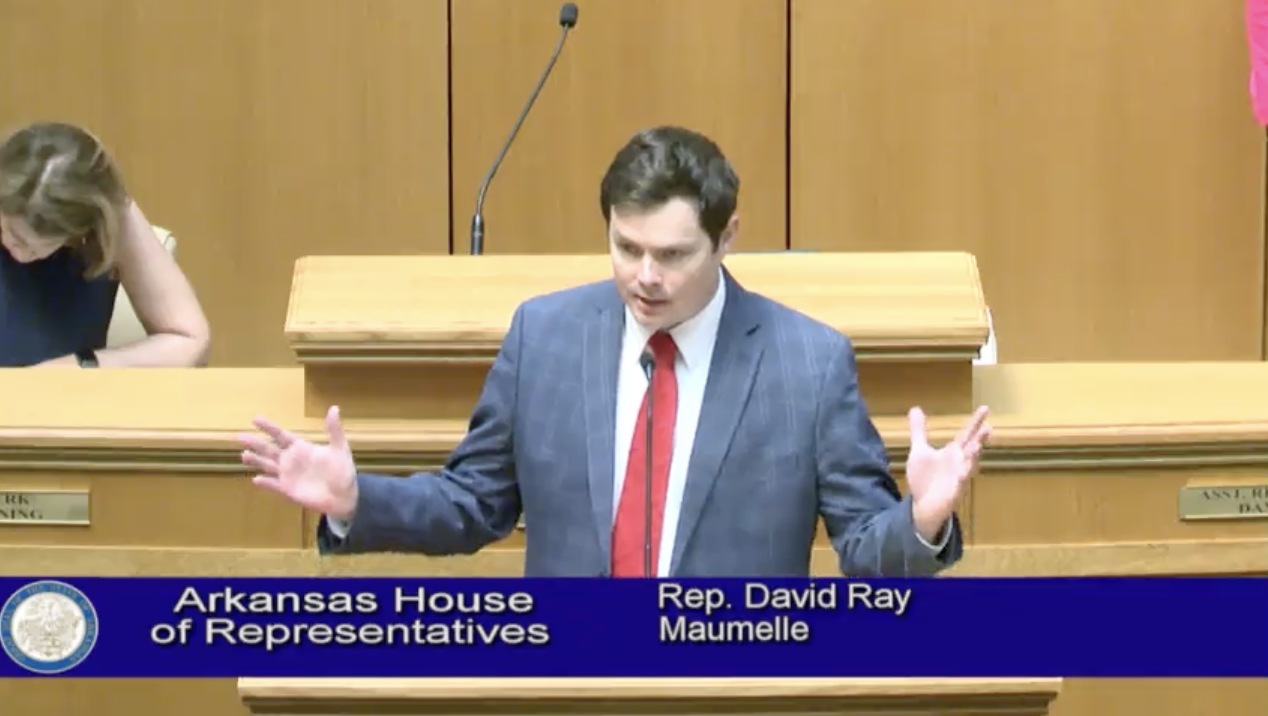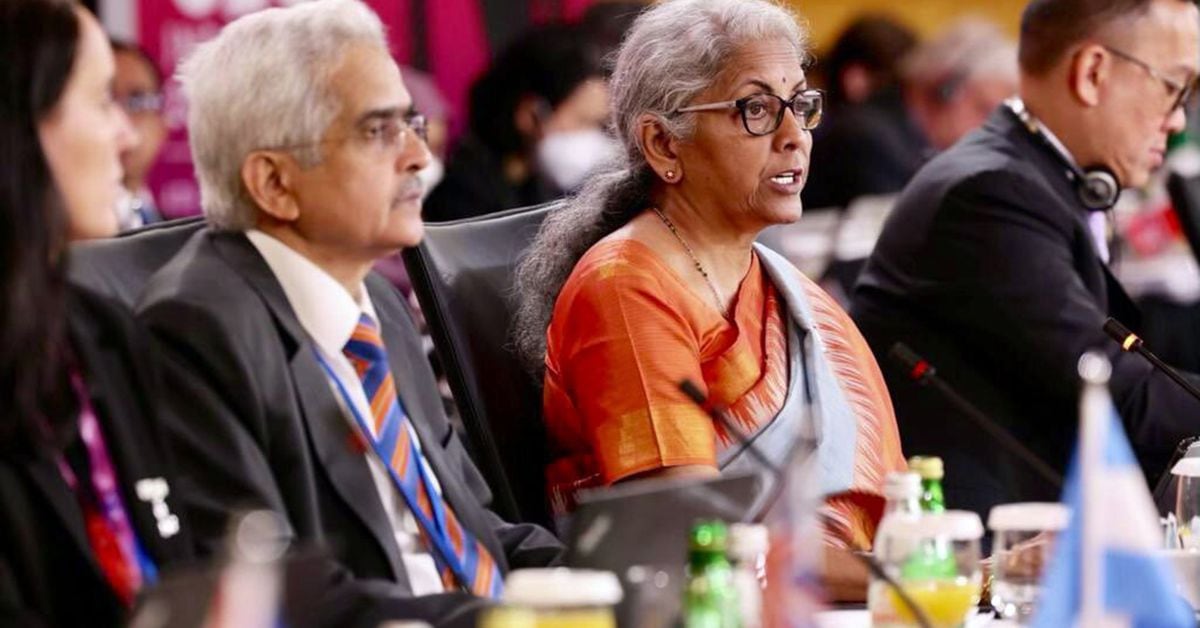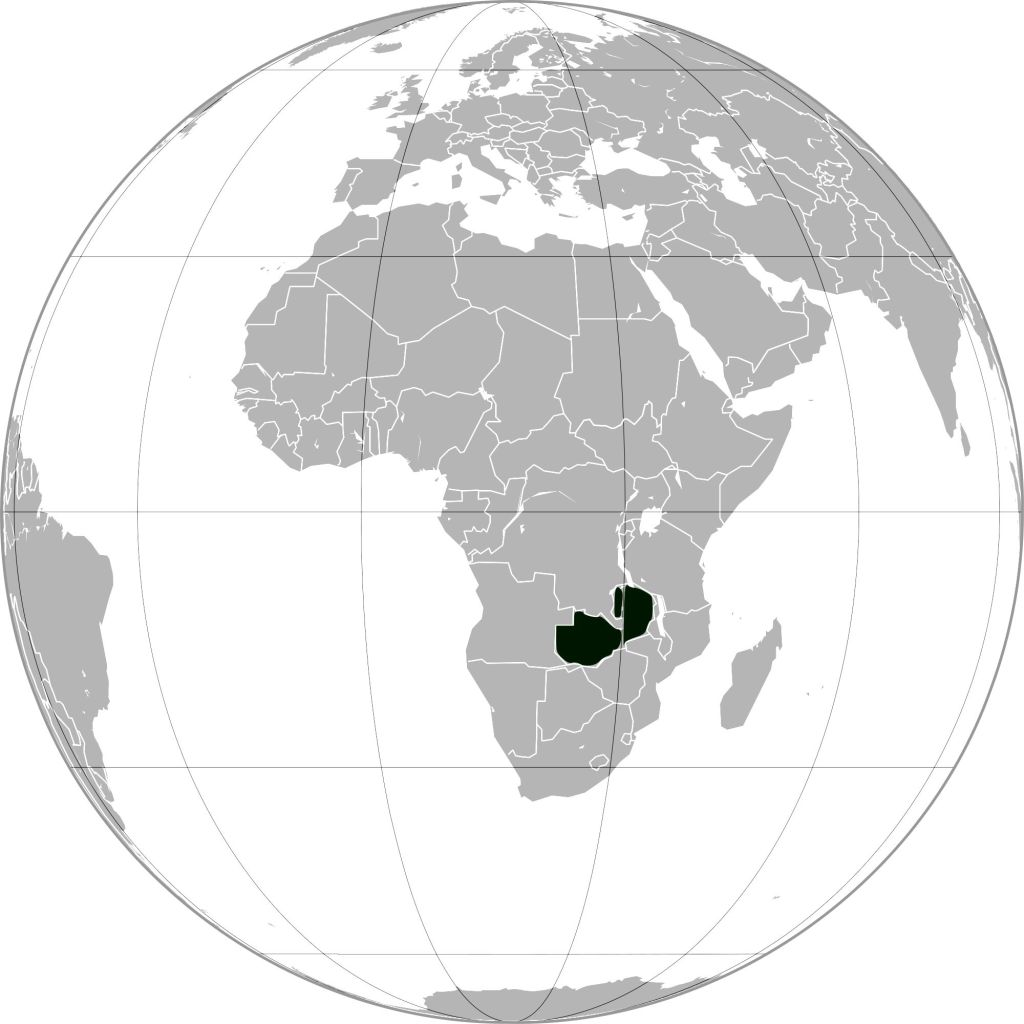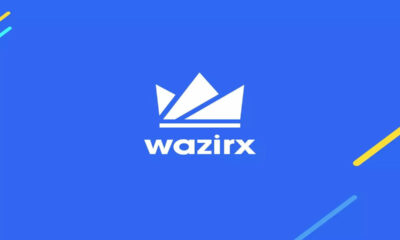Regulation
Six of eight cryptocurrency mining resolutions fall short of Arkansas House • Arkansas Advocate

The Arkansas House authorized the introduction of two bills on Wednesday proposing stricter regulations on cryptocurrency mining while six other proposals failed to gain enough votes.
All of the proposed bills would have amended Act 851 of 2023, or the Arkansas Data Center Lawwhich was passed with bipartisan support and limited the ability of state and local governments to regulate cryptocurrency mining operations.
The resolutions required a two-thirds majority vote in both houses of the legislature to be introduced during the fiscal session. The Senate passed all eight resolutions with at least a minimum of 24 votes.
Six resolutions sponsored by Rep. Josh Miller, R-Heber Springs, fell short of the 67 votes needed to pass the House on Wednesday.
Sen. Bryan King, R-Green Forest, has sponsored identical resolutions in the Senate and has been the legislature’s biggest advocate for regulating cryptocurrency mining. In an interview after the House vote, he said he believes “the solution is there” for cryptocurrency mining to come and thrive in Arkansas.
Senator Bryan King, R-Green Forest (Arkansas Legislature)
Cryptocurrency mines, large clusters of computers that harvest digital currency, are often found in rural areas because they take up a lot of space. They also require a significant amount of energy to operate and water to keep computers cool.
There are cryptocurrency mines in DeWitt and the Bono community near the Greenbrier, and officials have raised concerns about foreign ownership and whether the mines pose a national security risk. Additionally, residents in the Greenbrier area have filed a lawsuit alleging noise pollution caused by a cryptocurrency mine.
One of two policy proposals approved by the House would place noise limits on Arkansas cryptocurrency mines and prohibit them from being owned by certain foreign entities. Sen. Joshua Bryant, R-Rogers, and Rep. Rick McClure, R-Malvern, sponsored the resolution, which received 80 yes votes.
Bryant and McClure also sponsored Act 851 last year. King said the resolution they sponsored was essentially “pro-cryptocurrency.”
The other resolution, sponsored by Rep. Jeremiah Moore, R-Clarendon, would require cryptocurrency mines to be licensed by the state Department of Energy and Environment. It would also require the department to brief legislative committees on its methods of regulating cryptocurrency mining. It passed the House with 84 votes and had the patronage of Sen. Missy Irvin, R-Mountain View, in the other chamber.
Bryant and Irvin filed Senate Bill 78 AND Senate Bill 79respectively, Wednesday afternoon after their resolutions passed the House.
Debate in the room
Rep. David Ray, R-Maumelle, spoke against all six of Miller’s resolutions. He said he doesn’t believe they have addressed the three main problems he sees in crypto mining—noise, foreign ownership and proximity to residential areas—while he believes the Moore and McClure resolutions have.
Ray also said the Legislature should be careful about what non-budgetary issues are addressed as legislation during the fiscal session.
“We can do a better job of looking at these individual resolutions and choosing one or two to bring to the committee that addresses these issues that we know Arkansans are dealing with,” Ray said.
He called House Resolution 1019, which would have called for a fee based on electricity use, “the worst of the bunch” and “a de facto ban on bitcoin mining.”
Miller noted that businesses in many other industries are required to pay taxes to the state. He also said requiring notice before a cryptocurrency mining operation buys land would give citizens a warning not to buy property in an area where property values would likely decline due to noise and high utility bills.
Several lawmakers agreed with Miller that the House should allow all cryptocurrency bills to be filed so they could be debated and amended as members saw fit in committee.
“It may take a little longer to do this, but I think the time will be well invested,” said Rep. Marcus Richmond, R-Harvey. “…The only thing worse than doing nothing is doing something halfway and then going to our constituents and trying to explain to them why we got it wrong the second time anyway.”
Rep. Stephen Meeks, R-Greenbrier, said he supports all of the resolutions, especially because the cryptocurrency mine in the Faulkner County portion of his district is facing a lawsuit from local residents.
“If we fail to address this problem, we fail to protect our citizens as we should,” Meeks said.
Elsewhere in Faulkner County, the Vilonia Planning Commission voted against unanimously granting a permit to build a cryptocurrency mine in the area last June. The vote came after the city council listened to citizens’ concerns about cryptocurrency mining and voted to limit noise throughout the city in preparation for the mine’s arrival. Little Rock Public Radio reported.
Rep. Cameron Cooper, R-Romance, represents Vilonia and told the House he has received numerous complaints from constituents about the proposed mine. He said the situation led him to oppose Law 851, not yet in force as of June, even though he hadn’t previously given it much thought.
“Thankfully, the city avoided that disaster,” Cooper said. “…Self [the law] they were already in place, I don’t think they could have prevented it.”
Rep. Ron McNair, R-Alpena, said he hoped to discuss the cryptocurrency industry during the special session called by Gov. Sarah Huckabee Sanders last September, but “was told there wasn’t enough interest.”
Cryptocurrency mining came to Harrison’s McNair District in 2022, and Bill 851 encouraged the industry to continue moving into the state, he said.
“After the session, in my first town hall, there was a gentleman from New York who came to Harrison with him [Act] 851 in his hand and said, ‘We’re here because you did this,'” McNair said. “That’s what the public saw.”
Regulation
India unlikely to see crypto tax cut in Tuesday’s budget

Experts said India is unlikely to change its controversial withholding tax (TDS) policy on cryptocurrency transactions when Finance Minister Nirmala Sitharaman presents her full budget for 2024-25 on Tuesday.
The budget is the first since Prime Minister Narendra Modi was elected to a third consecutive term. What is different this time is that Modi’s Bharatiya Janata Party (BJP) has unexpectedly failed to secure a majoritywhich needs to form a coalition government. The budget will likely take into account its alliance partners, who have already asked for more than 15 billion dollars in the next few years.
For the cryptocurrency industry, TDS is a hot button issue. The Bharat Web3 Association (BWA) has been calling for the tax to be reduced from 0.01% to 1% since it was announced two years ago. The industry body presented data from multiple sources, including a think tank study that provided evidence to support a reductionAmong other arguments, he says lowering the rate will keep more transactions onshore, leading to more revenue for the government.
“I don’t see the 1% TDS being cut anytime soon, despite the need,” said Punit Agarwal, founder of cryptocurrency taxation platform KoinX. “The current rate leads to capital flight to global exchanges and DEXs, ultimately causing a loss for the government.”
Although the surprising election result introduced the need to satisfy coalition partners and Last week’s $230 million cyber attack of cryptocurrency exchange WazirX, which may have pushed cryptocurrencies down the priority list, BWA officials said they hope at least one of their three requests will be granted.
The BWA is also seeking “direction in terms of regulation.” India does not have comprehensive cryptocurrency regulation, although senior officials at the Ministry of Finance have said they plan to introduce a draft bill to parliament.
What gives them hope is that the association has been invited to speak to the ministry as part of the pre-budget consultations, unlike in 2022 and 2023. However, ministry officials “did not give us any sense or comment,” said R Venkat, a member of the Bharat Web3 Association who attended the meeting. The finance ministry declined to comment.
“The high TDS may have pushed retail investors to offshore exchanges, but the government’s focus on stringent regulation suggests that a reduction in fees is unlikely,” said Rajat Mittal, a crypto tax advisor to the Supreme Court. “The need for robust oversight in the digital asset space is seen as more critical than easing industry concerns.”
Regulation
State-led amicus brief criticizes SEC’s power to regulate cryptocurrencies

An amicus brief filed by Iowa Attorney General Brenna Bird argues that the U.S. Securities and Exchange Commission (SEC) is overstepping its authority in regulating the cryptocurrency industry.
The brief, supported by Arkansas, Indiana, Kansas, Montana, Nebraska and Oklahoma, statements The SEC’s “power grab” is stifling innovation in the industry. He warned that the regulator’s approach could override state laws crucial to implementing adequate protections. Attorney General Bird said in a announcement:
“Biden’s SEC is trying to prevent states like Iowa from doing their job of holding robbers accountable and protecting families from the dangers of cryptocurrency scams.”
The coalition has raised constitutional questions, invoking the Major Questions Doctrine and the principles of federalism. They argue that regulating a multi-billion dollar industry like cryptocurrency requires explicit congressional authorization, which they argue is not available to the SEC.
“The SEC’s attempt to regulate cryptocurrencies without proper Congressional authorization poses a direct threat to state authority and consumer safety,” the filing reads.
According to the Coalition, the SEC’s current approach of regulating through enforcement actions rather than developing adequate legislative frameworks violates the Administrative Procedure Act (APA).
The report also criticized the SEC’s history of enforcement actions against cryptocurrency entities, citing the SEC Case Against SafeMoon LLC.
In this case, the SEC classified SafeMoon’s token as a security based on its price fluctuations. The coalition warned that this standard could allow the SEC to regulate any commodity that changes its value, not just cryptocurrencies.
“Biden’s SEC is attempting to abuse its power and take over the responsibility of regulating cryptocurrencies, circumventing state consumer protection laws,” the report reads.
Additionally, the SEC’s classification of several cryptocurrencies as securities has also been criticized.
The complaint argues that most cryptocurrencies do not meet the criteria of an investment contract, as defined by the Supreme Court’s Howey test, which requires an investment in a joint venture whose profits are derived solely from the efforts of others.
This power grab will also harm the free market and allow the SEC to take over the regulation of the cryptocurrency industry without any accountability,” Bird added.
At the time of publication, the SEC had not yet responded to the request.
In February 2024, Attorney General Bird joined other states arguing that the SEC had exceeded its authority in its case against Kraken. The joint statement also urged the court to dismiss the SEC’s securities claims.
“The court should refuse to classify cryptocurrencies as securities in the absence of an investment contract. The SEC’s exercise of this undelegated authority puts state consumers at risk by overriding state statutes that are better suited to the specific risks of non-securities products.”
Regulation
“Forced de-dollarization measures risk proving ineffective,” says IMF official in Zambia – BitKE

Zambia’s proposed ban on charging foreign currency in local transactions, punishable by up to 10 years in prison, could defeat its purpose, according to the International Monetary Fund (IMF).
In June 2024, the Bank of Zambia (which is the Central Bank of Zambia) has unveiled plans to curb growing dollarization in the economy which he says weakens its tools to fight inflation.
REGULATION | Bank of Zambia plans to criminalise use of foreign currency during Kwacha rally – Italian: https://t.co/XCx2LnjDEV Italian: https://t.co/MhCXCDHMVx
— Zambia travel tours (@zambia_travels) July 4, 2024
According to a recent local report, companies have already pushed back against the proposed regulations, calling them “punitive” and warning that they could actually fuel price increases.
In an interview with Bloomberg, IMF Resident Representative Eric Lautier said that for such measures to be effective, macroeconomic stability would generally be needed, including low and stable inflation and limited external pressures.
“Forced de-dollarization measures risk proving ineffective and could even be counterproductive,” unless they are accompanied by a strong macroeconomic stabilization plan, and depending on the specific conditions of the country and the modalities of implementation, Lautier said.
“We are evaluating these possibilities.”
Zambia’s annual inflation rose to a 29-month high of 15.2% in June 2024, on the back of its worst drought in decades. The nation is also emerging from a painful debt restructuring process and its currency has been volatile.
The draft regulations are among several far-reaching reforms aimed at achieving macroeconomic stability, with the bank continuing consultations to finalize them. While the law designates the Kwacha as Zambia’s sole legal tender, businesses such as mall landlords, car dealers and hotels often set prices in dollars.
According to the IMF, Zambia, which has a $1.7 billion economic program with the Fund and is considering asking for further assistance, did not consult it about the plans before announcing them.
The IMF has just begun evaluating the initiative and has consulted with authorities, including the Bank of Zambia, on the details to assess its merits, Lautier said.

 IMF Managing Director Kristalina Georgieva meets with Zambian President Hakainde Hichilema in Lusaka.
IMF Managing Director Kristalina Georgieva meets with Zambian President Hakainde Hichilema in Lusaka.
In Africa, governments are stepping up efforts to protect their economies from the effects of the dollar.
🇪🇷 WATCH | Eritrea’s President Calls for New Global Financial System Not Controlled by Dollar or Euro
“We are a very small threat, we are not even a threat to them. But they have to contain us, sanctions, sanctions, sanctions, conflict here, conflict there,”
“I am… photo.twitter.com/AXD5eOW69I
— BitKE (@BitcoinKE) August 3, 2023
See also
Aside from Zambia, the last few weeks have seen Uganda, TanzaniaAND Zimbabwe announce de-dollarization measures.
REGULATION | ‘We are on a de-dollarization path,’ says Reserve Bank of Zimbabwe governor as gold reserves surge 30% in 100 days
The increase in reserves will allow the central bank to issue more ZiG currency, thus moving closer to its goal of reducing the country’s dependence on… photo.twitter.com/TvIoIyphtU
— BitKE (@BitcoinKE) July 17, 2024
Related
Regulation
Cryptocurrency News: India Can Achieve Responsible Cryptocurrency Development With Self-Regulation

The rise of the cryptocurrency sector It has been a dynamic and unpredictable journey over the past few years. While cryptocurrencies are not yet a major part of the global financial system, that too is starting to change and their presence is now indisputable.
However, the boundless nature of cryptocurrencies poses various risks to the global economy due to its unique technological and economic characteristics. Effective regulation in the area of investor protection is essential to building trust in markets like India, which is at the forefront of global cryptocurrency adoption. Similar to other G20 nations, India must balance the need to protect investors with the desire to foster innovation in this rapidly evolving sector.
The Indian government has had to grapple with the complexities of regulating cryptocurrencies, or Virtual Digital Assets (VDA), as they are called in India. Initially considering an outright ban, India has since recognized the global nature of the cryptocurrency market and the need for a coordinated international response. During its G20 PresidencyIndia has taken a leadership role in promoting a collaborative global regulatory framework to address the cross-jurisdictional challenges posed by VDAs.
Cryptocurrency Tracker
A recent article from the Indian Council for Research on International Economic Relations (ICRIER) on regulatory choices for crypto-assets for consumer protection highlights the need for the Indian government to leverage international experience and work towards harmonized global regulation for this asset class. While close collaboration between sectors is essential for the evolution of the market, it cannot replace strong government oversight.Key Developments in India’s VDA Regulatory Framework
- Taxation of ATVsIndia has introduced income tax laws to recognize earnings from cryptocurrency transactions, thus bringing them under the purview of the Income Tax Act.
- Anti-money laundering measuresThe Prevention of Money Laundering Act (PMLA) now covers VDA transactions, requiring VDA service providers and wallets to conduct customer due diligence and register with the Financial Intelligence Unit, India (FIU-IND).
- Regulatory SandboxThe Reserve Bank of India’s Enabling Framework for Regulatory Sandbox allows testing of blockchain technologies, although it currently excludes cryptocurrencies and related services.
Despite this progress, a comprehensive regulatory framework for cryptocurrencies remains elusive. However, the government has indicated a preference for a globally aligned approach. This was highlighted in their presidential note to the G20 for the IMF-FSB position paper, recommending:
- Establishing a global coordination framework for cryptocurrency regulation.
- Developing standards for stablecoins and unsupported cryptocurrencies.
- Improving cross-border payments and addressing risks to financial stability.
The way forward: self-regulation and global cooperation
To realize the full potential of cryptocurrencies and mitigate risks, India must actively work with its G20 partners to implement these recommendations. At the national level, the government should consider allowing self-regulation among responsible and compliant Indian players, as this could foster innovation while ensuring investor protection. As a first step towards self-regulation, the leading Web3 and VDA industry body, the Bharat Web3 Association (BWA), of which CoinSwitch is a founding member, has issued two sets of voluntary guidelines, one on consumer protection and another on token listing. More will follow.
Furthermore, it will be essential to reconsider the tax treatment of the AoEs in the Union budget of July 2024:
- Reduce TDS rate on VDAs: Reduce TDS rate on transfer of VDA from 1% to 0.01% under Section 194S to bring most VDA transactions under tax control mechanism, improve tax compliance and prevent capital flight.
- Allow for loss compensation: Enable loss offsetting in a similar manner to other sectors to encourage responsible business practices and reduce the risk of tax evasion.
- Review the 30% flat rate: Review the 30% flat rate applicable to VDA transfer income to ensure parity with other technology-based sectors.
As the global regulatory landscape for cryptocurrencies evolves, India’s leadership in this space will be crucial. By striking the right balance between regulation and innovation, India can position itself as a hub for responsible cryptocurrency development and help create a more stable and inclusive financial system.
(The article is attributed to R Venkatesh, Senior Vice President – Public Policy, CoinSwitch)
(Disclaimer: Recommendations, suggestions, opinions and views provided by experts are personal. They do not represent the views of the Economic Times)
-

 News1 year ago
News1 year ago“Captain Tsubasa – RIVALS” launches on Oasys Blockchain
-

 Ethereum1 year ago
Ethereum1 year agoComment deux frères auraient dérobé 25 millions de dollars lors d’un braquage d’Ethereum de 12 secondes • The Register
-

 News1 year ago
News1 year agoSolana ranks the fastest blockchain in the world, surpassing Ethereum, Polygon ⋆ ZyCrypto
-

 Videos1 year ago
Videos1 year agoIs Emorya the next gem💎 of this Bitcoin bull run?
-

 Videos1 year ago
Videos1 year agoHistoric steps for US cryptocurrencies! With a shocking majority vote!🚨
-

 Regulation1 year ago
Regulation1 year agoTrump’s Vice President Could Be the Face of Cryptocurrency Regulation in the US: Here’s How ⋆ ZyCrypto
-

 News1 year ago
News1 year agoSolana Surpasses Ethereum and Polygon as the Fastest Blockchain ⋆ ZyCrypto
-

 Videos1 year ago
Videos1 year agoNexus Chain – Ethereum L2 with the GREATEST Potential?
-

 Ethereum1 year ago
Ethereum1 year agoScaling Ethereum with L2s damaged its Tokenomics. Is it possible to repair it?
-

 News1 year ago
News1 year agoFnality, HQLAᵡ aims to launch blockchain intraday repositories this year – Ledger Insights
-

 Regulation1 year ago
Regulation1 year agoFinancial Intelligence Unit imposes ₹18.82 crore fine on cryptocurrency exchange Binance for violating anti-money laundering norms
-

 Bitcoin1 year ago
Bitcoin1 year agoBitcoin Drops to $60K, Threatening to Derail Prices of Ether, Solana, XRP, Dogecoin, and Shiba Inu ⋆ ZyCrypto




















